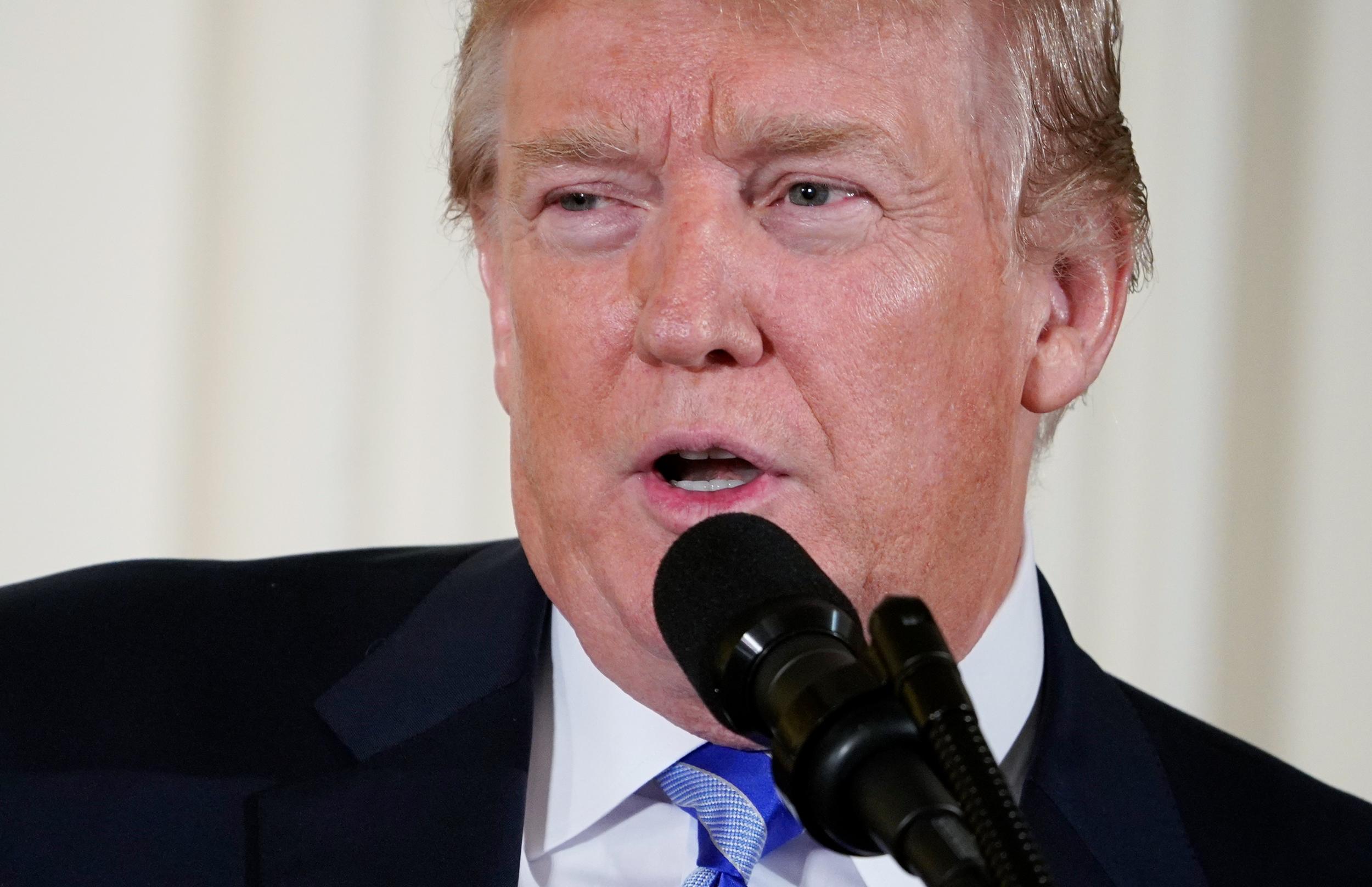Trump is doing something about guns – but this is only the start of an answer to a more pervasive problem
Even if there was an immediate ban on the sale of new weapons, the stock of pistols, rifles, guns and assault weapons accumulated in the US over the past century and more would keep the mad and the evil in weaponry for many years to come

After the Florida school massacre – only the latest in a series of increasingly routine mass gun slaughters in the United States – many vowed “never again”, but many also believed, in the harsh light of experience, that nothing would be done.
The students converging on the Florida state capitol to make their protest are certainly determined to see change. Sixteen-year-old Noah Kaufman, for example, told reporters: “We’re here to ask for change and we’re confident change will happen. We know the issues, and we know who is with us and who isn’t.”
As it happens, and against the form book, Donald Trump has taken it upon himself to do something about gun control. He has used his executive powers creatively, for a change, and ordered that “bump stop” devices, which turn guns into assault rifles, will be subject to the same sort of checks that currently apply to firearms.
The White House has added that Mr Trump is open to backing a bipartisan bill in the Senate to make the federal agency background check system more reliable, though the millions of checks required every year across 50 states originating with sometimes devious and criminal individuals will always make this a challenging task.
That, though, is it for the time being at least, and even that modest step is liable to run into opposition from the National Rifle Association (NRA). It may be, though, that this unusually stubborn President may have his heart and mind moved after a “listening session” with students, teachers and parents involved in the Florida shooting as well as people caught up in the 2012 massacre at Sandy Hook Elementary School in Connecticut and the 1999 mass shooting at Columbine High School in Colorado. Pure speculation, but it is also possible that Mr Trump’s daughter Ivanka might, privately, also influence him in the direction of sanity, although her “hearts and prayers” immediate public reaction wasn’t encouraging.
Mr Trump has publicly asked why his predecessor Barack Obama and his Democratic colleagues didn’t do more about guns when they had control of Congress a decade ago. It’s a reasonable-sounding question, but in reality little more than a debating point, because the truth is that the gun lobby and indeed American public sentiment is such that gun control remains a deeply controversial and problematic issue for lawmakers of any party – and they know it. They are all vulnerable to ejection at the primary or election stage to claims that they are betraying the spirit of the Second Amendment and desecrating the right to bear arms. The Democrats who criticise Mr Trump now may be hypocrites, while he was elected on an unashamed “gun rights” agenda, but it is beside the point. The problem is that anyone who runs for office in America outside of a few liberal enclaves risks their career by advocating restrictions of the acquisition, carrying and use of guns.
A half century ago, President Lyndon B Johnson, a far more effective operator than either Mr Obama or Mr Trump, and who for a time enjoyed landslide majorities in both houses, signed into law the 1968 Gun Control Act. Note the date: it took five years from the assassination of Kennedy to persuade the Congress to change the law even to a limited degree – at that time finally banning the mail-order sale of firearms, which is how Lee Harvey Oswald got his hands on his “6.5 Italian carbine”. The reform was opposed by the NRA. At the time, Johnson declared: “If guns are to be kept out of the hands of the criminal, out of the hands of the insane, and out of the hands of the irresponsible, then we must have licensing. The voices that blocked these safeguards were not the voices of an aroused nation. They were the voices of a powerful lobby, a gun lobby.” Johnson managed to simultaneously revolutionise civil rights, voting rights, fight a war in Vietnam and push through a vast expansion in America’s welfare system, the Great Society, but the NRA thwarted him.
The pattern has been the same ever since; shock followed by some impetus to reform, followed by delay and slow, slow progress, sometimes reversed. It took more than a decade after John Hinckley shot Ronald Reagan to secure a five-day waiting period for approval to acquire a firearm, which has since been watered down. Congress approved an assault weapons ban in 1994, but scrapped it during the neo-con ascendancy in 2004.
Still, the persistent power of the lobby and of public opinion is no reason to give up the campaign, and every modest step forward erodes the (in fact fictional) notion that the right to bear arms is unconditional. The Second Amendment has, in effect, been itself amended many times, and it can be amended again. Yet even if there was an immediate ban on the sale of new weapons, the stock of pistols, rifles, guns and assault weapons accumulated in the US over the past century and more would keep the mad and the evil in weaponry for many years to come. Gun control, elusive as it is, is only the start of an answer to America’s gun problem.

Join our commenting forum
Join thought-provoking conversations, follow other Independent readers and see their replies